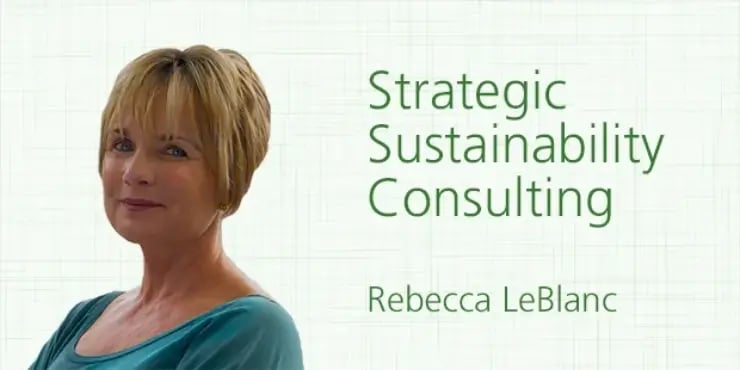Rebecca LeBlanc is a sustainability consultant at “Strategic Sustainability Consulting” in Boston, USA. Her experience shows that giving the context of the request and enough time most suppliers or life cycle partners respond with the best LCA data they can provide. Enjoy the interview!
When do you and your clients rely on collaboration along the life cycle?
There are a few different ways to collaborate, with internal personnel, and, the clients’ external suppliers/customers. Below are a few examples of when I depend upon collaboration during the LCA Inventory Analysis Phase:
Internally:
Process modeling: I rely heavily on collaboration for process modeling in terms of determining energy usage, mass-balancing, etc. with the shop floor personnel when working with product companies. Working directly with the equipment operators provides the most accurate & credible data in terms of energy, waste and material usage. I have actually been able to avoid applying allocation methods on process manufacturing lines by working directly with the shop floor personnel who are in charge of the production lines used for different products.
Externally:
Input materials – environmental impact data: In a few instances, I’ve been able to contact product manufacturers and discuss their own material inputs in terms of material and energy use which has been invaluable to the quality of the data. In one instance, I was working on impacts of different types of cow bedding material for dairy cows, and, spoke with a number of sand quarries on their specific practices. Another example involves a large chemical company who provided us with the elementary exchange data (which required quite an effort to produce) for an input material for a comparative analysis. This type of primary data is crucial to establishing a baseline for the company using this material in their end product.
What is your experience with the willingness of the life cycle partners to collaborate?
I find that if the partners know what you are trying to do, they will go above and beyond what you are requesting! How you request the data is very important. You must understand that these people are busy, and, whatever time they can devote to your request is in addition to their own obligations! In most cases, when given the context of the request and enough time, most people respond with the best data they can provide.
Sometimes collaboration fails, which are the biggest hurdles and challenges?
Awareness of how the data is going to be used, and, that proprietary information will not be divulged – it’s a trust issue.
Is there any special finding, a surprising result or improvement potential you found via a collaborative approach working along the life cycle with your clients?
Absolutely! Simply by looking at the numbers, awareness is raised, and, adjustments are made. It can be as simple as “we use that much electricity on that piece of equipment? it’s outlived its’ usefulness – costing too much money…”
What would be your most important recommendation for newcomers to the LCA field?
Be open to learn from everything & everyone. Everyone who is working in your clients company is an expert, you are there simply to learn and observe. Ask questions, and, listen. Always listen.
Thank you Rebecca!






